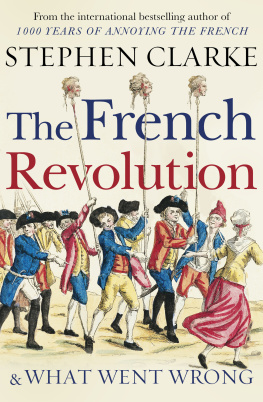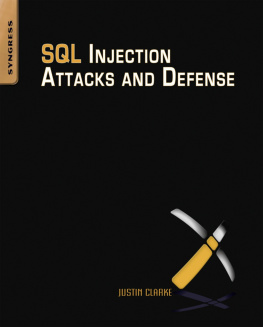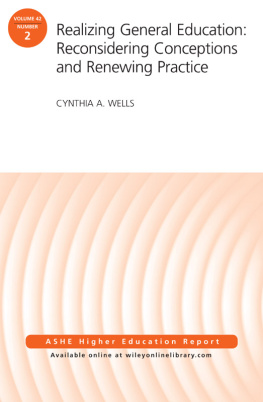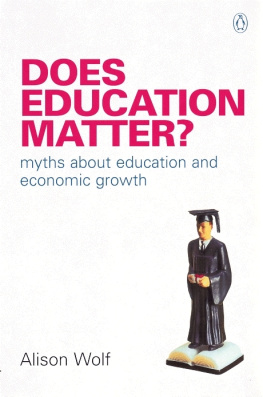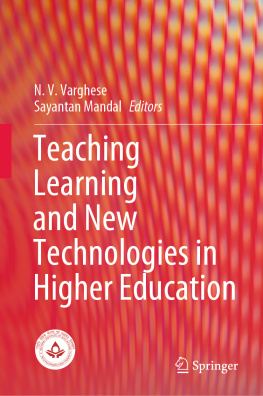Clarke - Higher Education in the Ancient World
Here you can read online Clarke - Higher Education in the Ancient World full text of the book (entire story) in english for free. Download pdf and epub, get meaning, cover and reviews about this ebook. publisher: Taylor & Francis (CAM), genre: Detective and thriller. Description of the work, (preface) as well as reviews are available. Best literature library LitArk.com created for fans of good reading and offers a wide selection of genres:
Romance novel
Science fiction
Adventure
Detective
Science
History
Home and family
Prose
Art
Politics
Computer
Non-fiction
Religion
Business
Children
Humor
Choose a favorite category and find really read worthwhile books. Enjoy immersion in the world of imagination, feel the emotions of the characters or learn something new for yourself, make an fascinating discovery.
- Book:Higher Education in the Ancient World
- Author:
- Publisher:Taylor & Francis (CAM)
- Genre:
- Rating:3 / 5
- Favourites:Add to favourites
- Your mark:
- 60
- 1
- 2
- 3
- 4
- 5
Higher Education in the Ancient World: summary, description and annotation
We offer to read an annotation, description, summary or preface (depends on what the author of the book "Higher Education in the Ancient World" wrote himself). If you haven't found the necessary information about the book — write in the comments, we will try to find it.
Higher Education in the Ancient World — read online for free the complete book (whole text) full work
Below is the text of the book, divided by pages. System saving the place of the last page read, allows you to conveniently read the book "Higher Education in the Ancient World" online for free, without having to search again every time where you left off. Put a bookmark, and you can go to the page where you finished reading at any time.
Font size:
Interval:
Bookmark:

ROUTLEDGE LIBRARY EDITIONS:
EDUCATION
HIGHER EDUCATION IN THE
ANCIENT WORLD
ANCIENT WORLD
M. L. CLARKE
Volume 92

First published in 1971
This edition first published in 2012
by Routledge
2 Park Square, Milton Park, Abingdon, Oxon, OX14 4RN
Simultaneously published in the USA and Canada
by Routledge
711 Third Avenue, New York, NY 10017
Routledge is an imprint of the Taylor & Francis Group, an informa business
1971 M. L. Clarke
All rights reserved. No part of this book may be reprinted or reproduced or utilised in any form or by any electronic, mechanical, or other means, now known or hereafter invented, including photocopying and recording, or in any information storage or retrieval system, without permission in writing from the publishers.
Trademark notice: Product or corporate names may be trademarks or registered trademarks, and are used only for identification and explanation without intent to infringe.
British Library Cataloguing in Publication Data
A catalogue record for this book is available from the British Library
ISBN 13: 978-0-415-61517-4 (Set)
eISBN 13: 978-0-203-81617-2 (Set)
ISBN 13: 978-0-415-68908-3 (Volume 92)
eISBN 13: 978-0-203-18131-7 (Volume 92)
Publisher's Note
The publisher has gone to great lengths to ensure the quality of this reprint but points out that some imperfections in the original copies may be apparent.
Disclaimer
The publisher has made every effort to trace copyright holders and would welcome correspondence from those they have been unable to trace.
M. L. Clarke
Higher education in the
ancient world

Routledge & Kegan Paul London
First published 1971
by Routledge & Kegan Paul Ltd
Broadway House, 6874 Carter Lane
London, EC4V 5EL
Printed in Great Britain
by Richard Clay (The Chaucer Press), Ltd,
Bungay, Suffolk
M. L. Clarke 1971
No part of this book may be
reproduced in any form without
permission from the publisher,
except for the quotation of brief
passages in criticism
ISBN o 7100 6916 2
Map
Sketch map of Athens showing the location of the philosophical schools.
page 56
First I must explain and justify my title. By higher education I mean all education above the primary or elementary stage. Some of this can perhaps hardly qualify as higher. Grammar, for instance, was normally studied at what one might call the preparatory school level; but it could be pursued further than that, and in view of its close relationship to rhetoric, which for many in the ancient world was the final stage of education, it seemed right to include it. The ancient world of my title is the world of Greece and Rome from the fourth century B.C. onwards. I have continued the story, though briefly and rather superficially, into what are generally thought of as the Middle Ages. So far as education is concerned the ancient world might well be said to have lasted until 1453 in Byzantium, and there is at least a case for maintaining that it lasted until then, or even later, in the West. Indeed, in some respects it lasted almost to the present day. There must be men alive whose fathers had an education not very different from that of the Roman Empire, who read at school little more than Homer, Virgil and Horace, and who learned their geometry from Euclid.
Some writers on ancient education are primarily concerned to draw lessons from it for the present day (Ancient Education and Today is the title of a work by a former headmaster and Professor of Education). This is a legitimate approach; no doubt one can draw stimulus and inspiration from the educational theory and practice of the best teachers of antiquity, and the past would hardly be worth studying if one could learn nothingfrom it. My approach, however, is rather different. I think of educational history as an important part of social and cultural history. Our culture and outlook on life depend to a large extent on what we have learned at school, and this was particularly true before the invention of printing facilitated the diffusion of knowledge and ideas outside the schools. My chief concern has therefore been to describe what was taught and how it was taught. I have not said much about educational theory; what Plato advocated in the Republic is not what the ordinary student experienced in the schoolroom.
If there are lessons to be learned from the educational system of antiquity they may not be those we wish to find there. Those who deplore early specialization or the neglect of science will find that these are features of education in the ancient world as much as, indeed more than, at the present day. Those who think that education should be relevant to modern conditions will find little support in ancient practice; Homer, the standard textbook of the Greek grammar schools, read in fifth-century Athens, Republican Rome and imperial Byzantium, was, it might be said, equally irrelevant to all these societies. Nor does the ancient world provide much support for what we call a classical education; Greek and Latin were not dead languages for the Greeks and Romans. What we do find, and what we may well envy, is a remarkable stability in education. The ancients were not constantly devising new syllabuses and trying new methods; they were content with the established textbooks and well-tried methods. The consequence was a strong and lasting cultural tradition which united educated men of different countries and different ages and was able to survive even the challenge of Christianity.
Previous general histories of Greek and Roman education may be said to have been superseded by H.-I. Marrou's Histoire de l ducation dans l antiquit, published in 1948 and translated into English in 1956 as A History of Education in Antiquity. If I have made some critical references to Marrou's work, this does not mean that I do not recognize the value of his lively and informative survey. Where I cover the same ground as he did I hope that I have been able to add something. In particular I have dealt in considerable detail with the teaching of the philosophers, on which there is a good deal ofevidence which Marrou did not use. For my brief section on Arab education I have had the benefit of the advice of Dr R. Walzer.
Translations except where otherwise stated are by the author.
The following are the principal abbreviations used in the notes:
| A.J.P. | American Journal of Philology |
| A.P. | Anthologia Palatina |
| C.A.G. | Commentaria in Aristotelem Graeca |
| C. Gloss. Lat. | Corpus Glossariorum Latinorum |
| C.I.L. | Corpus Inscriptionum Latinarum |
| C.Ph. | Classical Philology |
| Cod. Just. | Codex Justinianeus |
| Cod. Theod. | Codex Theodosianus |
| D. H | Dionysius of Halicarnassus |
| D.L. | Diogenes Laertius |
| F. Gr. Hist. | Fragmente der griechischen Historiker |
| Gr. Graeci | Grammatici Graeci |
| Gr. Lat. | Grammatici Latini |
Font size:
Interval:
Bookmark:
Similar books «Higher Education in the Ancient World»
Look at similar books to Higher Education in the Ancient World. We have selected literature similar in name and meaning in the hope of providing readers with more options to find new, interesting, not yet read works.
Discussion, reviews of the book Higher Education in the Ancient World and just readers' own opinions. Leave your comments, write what you think about the work, its meaning or the main characters. Specify what exactly you liked and what you didn't like, and why you think so.


